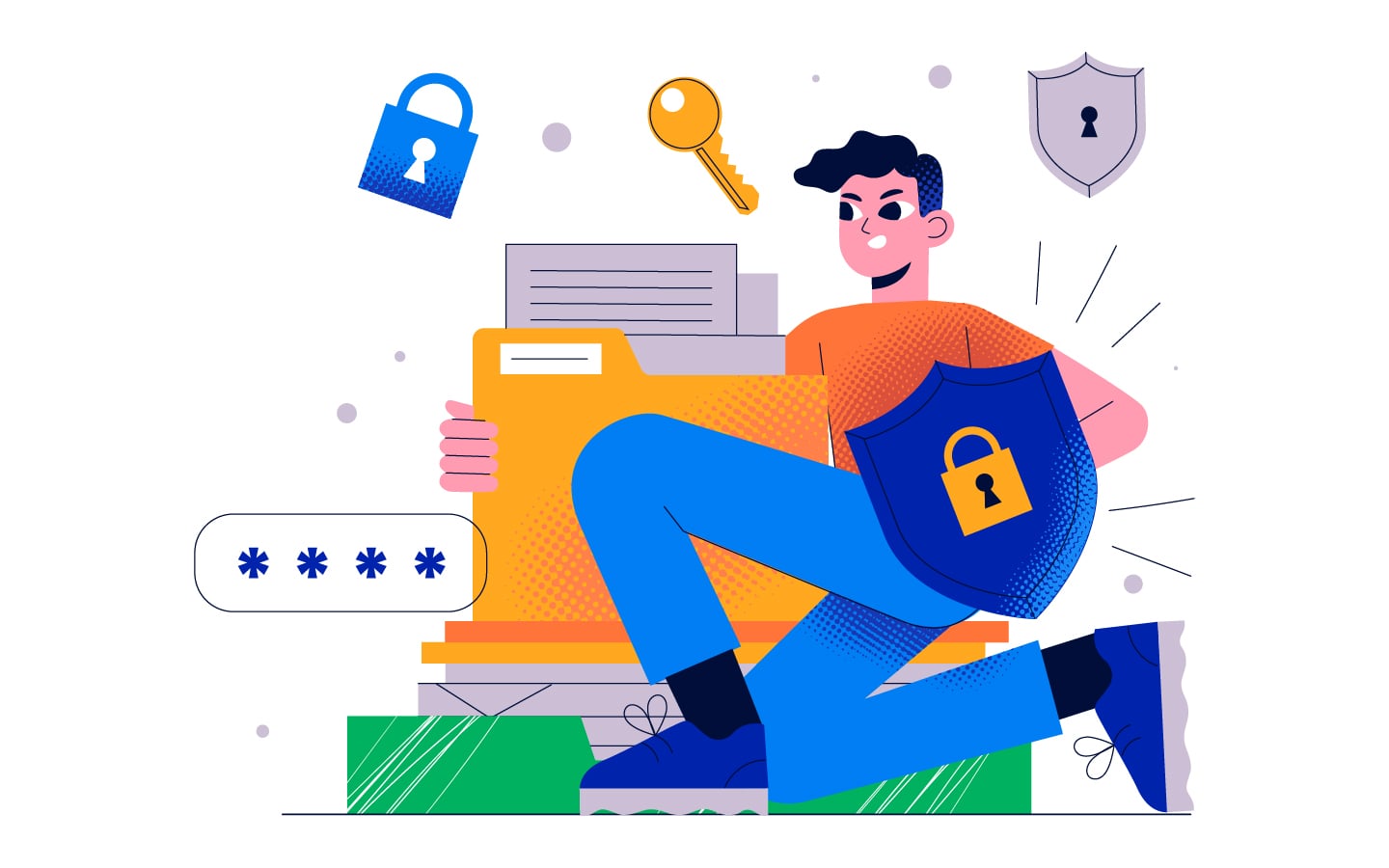Table of Contents
As businesses increasingly use software, web developers must keep up with the rising demand and the latest trends. And because of this, many modern companies want a faster output despite the complexity of the process, especially if they want applications that can adapt to any device, interface with other services, and work on any platform while working under tight timelines. Moreover, they must also develop a secure website that can withstand cyber threats.
Still, web developers find this challenging, and security is one of the sole reasons for neglect in development-related issues. It is because most of them do not adhere to some fundamental security rules despite it being the most crucial component when designing a website.
In this article, we’ll look at ways to design a website with security in mind so that you can overcome potential cyberattacks.
7 Essential Tips for Web Developers
As cyberattacks are getting prevalent, businesses must adopt a security approach when creating websites. And if the assigned web developer fails to do so, it may result in severe penalties, economic loss, and reputational harm, among other terrible outcomes. To secure your website and protect customer data, you must deal with various security issues. Below are some essential tips for creating a secure website for web developers.
1. Adopt a Thorough Security Strategy
Building an end-to-end secure site requires a disciplined strategy from the beginning of the construction process. It is especially crucial when various teams of information security experts are working on multiple aspects of the site. Data may become susceptible even if each team works with security in mind, as they may not know what the other groups are doing. That’s why security monitoring is required so that, when all the various components are combined, the finished website maintains a high level of security.

2. Verify All Data
Your website is vulnerable to numerous havoc-causing forms of attack if the data entered by your users is not validated. These include cross-site scripting, SQL injection, command injection, and other dangers of a similar nature. Therefore, data validation should be included to ensure that all information entered won’t be harmful.
3. Scan Your Website
It’s crucial to scan your website to ensure your developing website is secure. You can use it to find previously unidentified vulnerabilities and security gaps and close them. While the website is being developed, you should scan frequently. Once it is live, you should scan it every day, and after each time you update the system or website. Some web hosts will offer to scan your website for you.

4. Instantly Update Apps, and Use Clean Code
Hackers send millions of bots daily in search of websites using vulnerable, out-of-date software that they can access. These vulnerabilities can be fixed, and your website is made safer by updating your software to the most recent version or installing a security patch. Notably, the sooner you update, the quicker you become secure. And the safest and most convenient way to do this is through auto-updates.
To reduce the number of vulnerabilities overall, deleting unnecessary data, databases, and software from your server is always good practice. Website developers should avoid the usage of software with known vulnerabilities. Before installation, older, clean versions of the platform, themes, plugins, etc., should be swapped out for the newer, cleaner versions.
5. Use Strong Passwords
It is no secret that cybercriminals’ most sophisticated strategy to access information is through cracking weak passwords. Hence, if you use weak or default passwords for your website, you risk being attacked by these hackers. That’s why it is crucial to enforce strong passwords on your site or other security measures, like two-factor authentication, where a code will be sent to your phone, to ensure your data are safeguarded.

6. Rigorous Permission Control
The issue with weak passwords is worsened when administrator access and privileges are not effectively handled. If these are offered to non-essential users and third parties, the website becomes increasingly vulnerable to attack. Organizations must have a clear policy in place for managing permissions, and this policy must include safeguards that require a user’s authentication process to be stronger the more privilege they have.
7. Data Encryption
The best way to keep personal information about your users secure is to encrypt it. Doing this will prevent hackers from accessing your database, even if it is breached and the data is stolen. Additionally, if you sell products directly from your website, encrypt the user’s financial information as it travels from their browser to your website. As a result, it cannot be taken while in transit. This can be done by installing an SSL certificate.

Final Thoughts
As technology advances, the software cybercriminals use is becoming more sophisticated. To protect yourself and your users, you must adopt the best security strategies for your site. And this greatly depends on the web developers and how they will develop and design your businesses’ data.
To secure your website, you must implement things during its development rather than doing them at the end of the process. With the security tips mentioned above, you can prevent your website from being an easy target for cybercriminals.
Editorial Staff at Djdesignerlab is a team of Guest Authors managed by Dibakar Jana.





